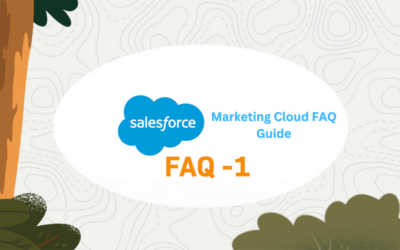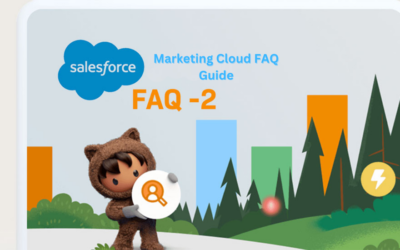In the ever-evolving landscape of modern business, the role of a Salesforce CPQ (Configure, Price, Quote) Architect has emerged as pivotal for organizations striving to optimize their sales processes and stay competitive. These highly specialized professionals are the masterminds behind the seamless integration of Salesforce CPQ, streamlining the sales journey from product configuration to accurate pricing and professional quoting. As businesses increasingly recognize the transformative potential of Salesforce CPQ, the demand for skilled CPQ Architects has soared. However, identifying the right candidate to fill this crucial role can be a daunting task.
To assist you in this endeavor, we’ve compiled a comprehensive list of the top 20 Interview questions and answers. These questions delve deep into the technical expertise, problem-solving capabilities, and strategic vision required to excel in this critical role. Whether you’re a seasoned hiring manager or new to the world of CPQ, this guide will equip you with the insights you need to identify the ideal CPQ Architect who can drive your organization’s sales success and deliver unmatched customer experiences. If you need assistance with Salesforce CRM setup and optimization, companies like CRM Force can provide valuable expertise and support.
1- How do you manage version control and change tracking for Salesforce CPQ configurations and customizations?
Answer: Version control is essential for tracking changes to CPQ configurations. The Architect should explain how they use features like Change Sets or source control systems (e.g., Git) to manage and document changes effectively.
2- What is the purpose of Salesforce CPQ’s Price Matrices, and how can they be configured to handle complex pricing scenarios?
Answer: Price Matrices in Salesforce CPQ allow you to define pricing based on combinations of product options, quantities, and other variables. They’re especially useful for handling intricate pricing structures. An Architect should explain how to set up Price Matrices and provide an example of their use in a complex pricing scenario.
3- What is the purpose of Quote Terms in Salesforce CPQ, and how do they influence the quote-to-cash process?
Answer: Quote Terms define the legal and financial terms associated with a quote. They play a critical role in ensuring consistency and compliance. The Architect should discuss how Quote Terms are configured and how they affect the quote-to-cash process.
4- How do you manage complex discount approval workflows in Salesforce CPQ, including multi-level approvals and conditional discounting?
Answer: Complex discount approval workflows often involve multiple approval levels and conditions. The Architect should discuss how to design and implement such workflows using CPQ’s approval features.
5- How can Salesforce CPQ support complex contract negotiations, including custom contract terms and conditions, in the quoting process?
Answer: Contract negotiations often require custom terms and conditions. The Architect should describe how CPQ can accommodate custom contract terms and conditions within quotes and contracts.
6- What is Salesforce CPQ’s role in managing revenue recognition for subscription-based businesses, and what reporting features are available for this purpose?
Answer: CPQ plays a role in revenue recognition by tracking contract terms and subscription renewals. The Architect should explain how CPQ assists in revenue recognition and highlight available reporting tools for tracking revenue-related data.
7- How do you configure Salesforce CPQ to support cross-selling and upselling strategies, especially for products with dependencies or bundling options?
Answer: Cross-selling and upselling strategies often involve product dependencies and bundling. The Architect should discuss how to configure CPQ to suggest complementary products and create bundled offers to maximize revenue.
8- How can Salesforce CPQ assist organizations in managing subscription-based revenue recognition under ASC 606 or IFRS 15 accounting standards?
Answer: Revenue recognition under ASC 606 or IFRS 15 involves recognizing revenue over time or at a specific point in time based on contract terms. The Architect should explain how CPQ can capture contract details and assist in complying with these accounting standards.
9- What are the considerations for configuring Salesforce CPQ to support multi-language and multi-currency quoting for international customers?
Answer: Internationalization is essential for businesses dealing with global customers. The Architect should discuss how to configure CPQ for multi-language and multi-currency quoting, including considerations for currency conversion and language translation.
10- How does Salesforce CPQ handle tiered pricing and volume-based discounts, and what configuration is required to implement them?
Answer: Tiered pricing and volume-based discounts are common pricing models. The Architect should detail how to configure CPQ to support these pricing structures effectively.
11- How can Salesforce CPQ be integrated with third-party billing and invoicing systems to automate the invoicing process for customers?
Answer: Invoicing automation often involves integrating CPQ with external billing and invoicing systems. The Architect should discuss integration strategies and technologies for automating this process seamlessly.
12- How does Salesforce CPQ support contract amendments and addendums, and what are the best practices for managing changes to existing contracts?
Answer: Contract amendments and addendums are common in business contracts. The Architect should explain how CPQ’s Contract and Amendment objects facilitate the management of contract changes and provide best practices for handling them effectively.
13- What is Salesforce CPQ’s role in managing custom pricing for strategic accounts or negotiated contracts, and how can custom pricing be configured?
Answer: Custom pricing for strategic accounts or negotiated contracts often requires special attention. The Architect should describe how CPQ can handle custom pricing and the configuration steps involved in setting up custom pricing rules.
14- How can Salesforce CPQ assist organizations in managing complex subscription billing scenarios, such as metered billing or usage-based pricing?
Answer: Metered billing and usage-based pricing are common in subscription models. The Architect should explain how CPQ can handle these scenarios, including configuring billing rules and usage tracking.
15- What are the options for integrating Salesforce CPQ with e-commerce platforms to enable online quoting and ordering?
Answer: E-commerce integration is crucial for online sales. The Architect should discuss integration options and methods for integrating CPQ with e-commerce platforms to provide seamless online quoting and ordering experiences.
16- How can Salesforce CPQ support organizations in managing contract renewals, including automated notifications and renewal processes?
Answer: Automating contract renewals is efficient and ensures business continuity. The Architect should describe how CPQ can be configured to handle contract renewal notifications and automated renewal processes.
17- What are Salesforce CPQ’s capabilities for handling complex sales tax calculations, and how can organizations ensure accurate tax calculations on quotes?
Answer: Sales tax calculations can be complex, considering varying tax rates and regulations. The Architect should discuss how CPQ’s tax features work and provide guidance on configuring accurate tax calculations.
18- How can Salesforce CPQ be used to manage and track service-level agreements (SLAs) and associated penalties in quotes and contracts?
Answer: Managing SLAs and penalties is crucial in service contracts. The Architect should explain how CPQ can track SLA terms and associated penalties within quotes and contracts.
19- How does Salesforce CPQ handle multi-level configuration, where the selection of one product option affects the availability or pricing of another?
Answer: Salesforce CPQ uses Configuration Rules to handle multi-level configurations. For example, in a computer configuration, selecting a specific CPU might limit the choices for compatible motherboards and vice versa. The Architect can create Configuration Rules that dictate these relationships, ensuring that selections at one level influence options at another, providing a seamless and accurate configuration process.
20- How does Salesforce CPQ handle scenarios where products have different pricing tiers or discounts for different customer segments?
Answer: Salesforce CPQ’s Price Rules allow organizations to define different pricing tiers or discounts for specific customer segments. For instance, wholesale customers may receive a different discount compared to retail customers. The Architect can create Price Rules that evaluate customer attributes, such as account type, to automatically apply the correct pricing or discounts when generating quotes, ensuring accuracy and consistency.
Conclusion
In the world of modern commerce, a Salesforce CPQ Architect stands as the visionary orchestrator of streamlined and efficient sales processes. Their role extends beyond the technical realm; they are the architects of success for businesses aiming to excel in a competitive market. These experts possess the rare combination of technical acumen and strategic prowess, enabling them to craft Salesforce CPQ solutions that align perfectly with an organization’s unique requirements. They not only configure the system to handle intricate pricing structures but also design it to empower sales teams with tools for generating accurate quotes swiftly. This role is the guardian of data integrity and a champion of regulatory compliance, ensuring that businesses operate with precision in an ever-evolving landscape.
In conclusion, the value of a Salesforce CPQ Architect cannot be overstated in today’s dynamic business environment. Their adeptness in handling complex pricing hierarchies, orchestrating the seamless configuration of multi-level product options, and integrating CPQ with diverse systems is pivotal to a company’s ability to adapt and thrive. As organizations continue to invest in Salesforce CPQ to gain an edge, the Salesforce CPQ Architect remains the guiding force behind achieving operational efficiency, and profitability, and delivering exceptional customer experiences. They are the bridge between technology and business success, playing a central role in reshaping how commerce operates in the digital age. To learn more about how CRM Force can assist you in recruiting top CRM talent and optimizing your CRM strategies for successful drip campaigns, contact us today. Together, let’s maximize your customer engagement Contact Us today.





